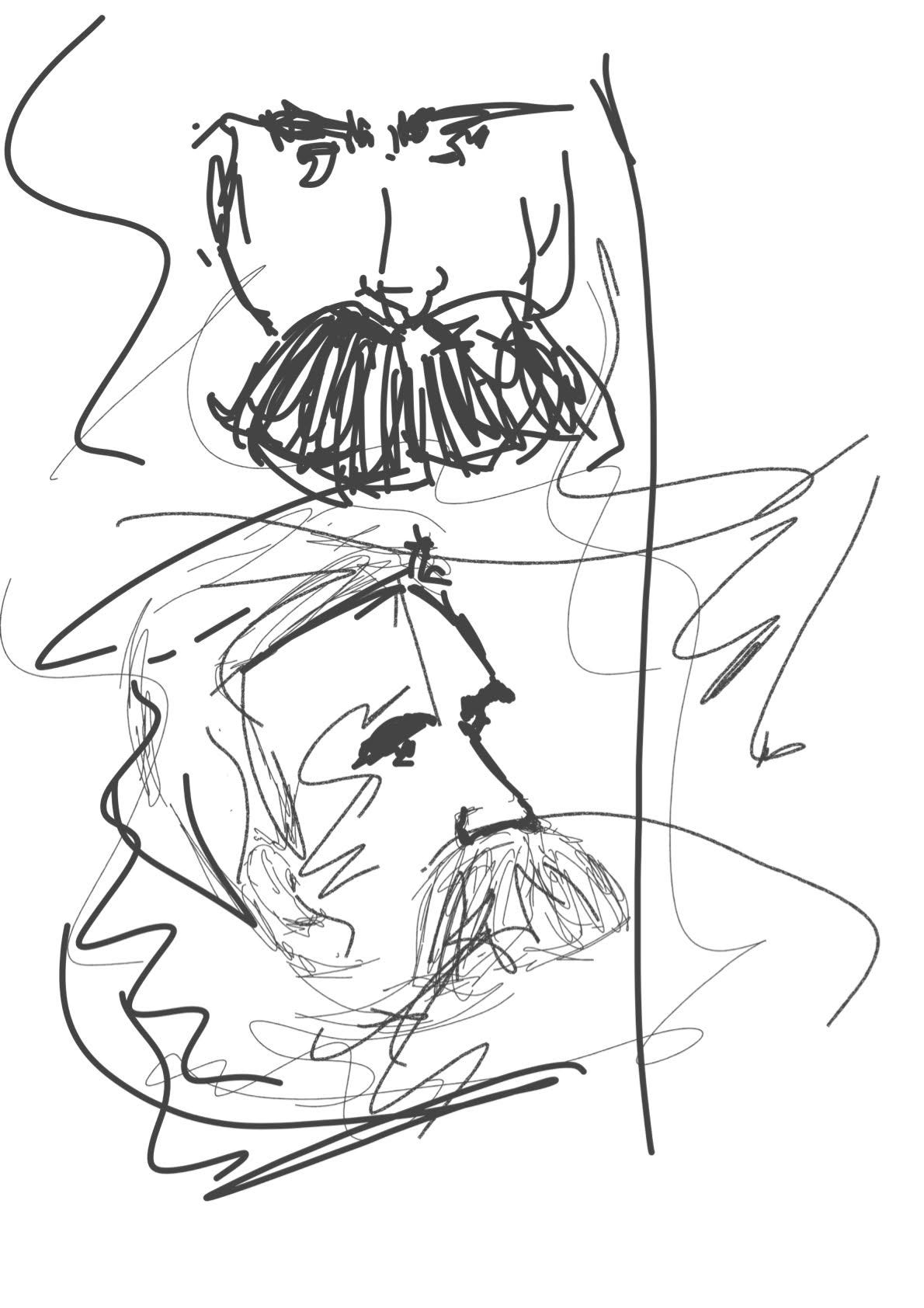Nietzsche & Plato: Vertically Opposite Angles
An article previously published on Al-Qabas newspaper.
he Discovery: A Journey Begins
I bought an iPhone for the first time, around 9 years ago. It was back then when I got introduced to podcasts and the iTunesU application which include many scientific resources that are published by reputable universities. I discovered many treasures, including a full semester of political philosophy lectures from Yale University. The lecturer was Professor Stevan B. Smith, who became my friend and mentor for many months. I listened to his lectures. The first time I heard his lecture on Plato’s Republic, I was caught up with his opening statement.
"There is one person in here, I don't know who it is, and you will not know who it is yet, but there is one person in here for whom the reading of Plato's Republic will be the most important intellectual experience you have at Yale..."
The Descent to Piraeus
After that he started the lecture speaking about the opening statement of the Republic “I went down yesterday to the Piraeus with Glaucon the son of Ariston”. Why to descend? He then narrated an interesting story, though it was not certain that it occurred, but anyhow it is a good story. People say that the famous German philosopher Martin Heidegger was teaching the “Republic” the first time and he taught the whole book in a single semester. However, the last time he taught it, he did not exceed the first statement, “I went down to the Piraeus”.
Smith explains that this descending is similar to Odysseus’s descent to Hades in Odyssey. Moreover, it goes to the extent to say that this work is a philosophical Odyssey journey that resembles Homer’s Odyssey but also resembles many journeys that are taken by the human brain. The book is also full of ascending and descending...
A Joker, A Philosopher
I wanted to write a detailed article about “The Joker” and the relationship that the Joker’s character has with Friedrich Nietzsche in this movie. I uploaded a video on YouTube early on, briefly speaking about the similarities I found between the Joker’s character and some ideas of Nietzsche. These similarities include an intense focus on dancing, laughter, dark comedy, and sarcasm that you find in Joker’s character. The mentioned aspects are all symbols that were repeated extensively in Nietzsche’s books...
Nietzsche and Plato: An Obsession
I saw a great resemblance between Nietzsche and Plato in many aspects. Moreover, I can go to the extent to think that Nietzsche was obsessed with Plato in the same way Plato was obsessed with poetry and legends. Both of their obsessions led to greatness and creativity.
“Therefore must I descend into the deep… like thee must I go down, as men say, to whom I shall descend”
Socrates’s Journey Begins
Socrates’s journey begins after he descended to Piraeus. This descent had many indications; the first was the epic indication to the similarity between that descent, and the descending of Odysseus to Helios in Odyssey. The second indication perhaps is the descending of philosophy from heaven to earth...
My teacher was Mohammed Abdullah AlSaeed, who told us once that you can find all the meanings of Plato’s dialogues briefly indicated in the beginning of the dialogue...
The Power Structure of the Dialogue
Cephalus the father of Polemarchus represents the power of lust. Polemarchus represents the power of anger. Kalitsounakis represents the power of mind. Adeimantus represents appetite. Glaucon represents spirit. Socrates represents reason. Through this scene alone, Plato probably states the message he intended to deliver in The Republic...
Zarathustra’s Descent
A descent was the beginning of that memorable, immortal, and great work, so it was Nietzsche’s Zarathustra. He narrated briefly what Zarathustra did when he turned thirty, after he isolated himself for ten years...
“No stranger to me is this wanderer: many years ago, passed he by. Zarathustra he was called; but he hath altered”
Diverging Paths, Common Origins
Both heroes get rid of the outdated traditions by expelling the old man’s character in both books. Socrates' dialogue leads to the rejection of old myths in favor of reason. Zarathustra’s dialogue leads to the proclamation of the Ubermensch...
Justice and the Ubermensch
The first book of the Republic reveals that it is about justice. Nietzsche, on the other hand, prepares for the appearance of the Anti-Christ and Ubermensch.
What is Zarathustra telling us and which path is he trying to lead us? He is for sure talking about the Ubermensch and how to prepare a society that will be founded by the Ubermensch. What are the characteristics and features of this Ubermensch and what blocks us from reaching this potential? What potential is needed to prepare for its arrival?


And then the concept of Übermench was misused by Hitler and the Nazi regime which misappropriated Nietzsche’s ideas for their own propaganda purposes, distorting the original philosophical meaning.